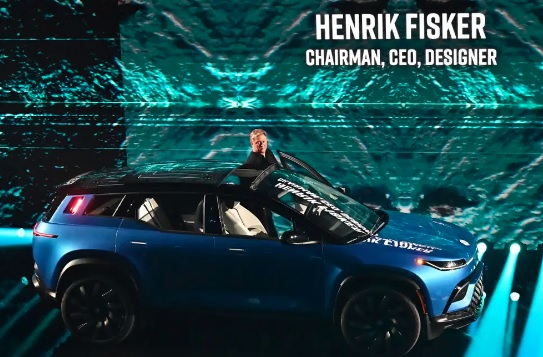A Company Facing Bankruptcy: 40,000 Canceled Orders and $9 Million Refunds
The electric car manufacturer, Fisker, is on the verge of bankruptcy as it faces the cancellation of 40,000 pre-orders and the need to refund $9 million. According to reliable sources, customers have been canceling their reservations for the Fisker Ocean model amidst the company’s struggle to secure additional financial resources.
A Major Setback for Fisker
Internal data reveals that out of the 70,000 pre-orders for the Fisker Ocean, more than 40,000 have been canceled. Notably, the company has been experiencing an average of 70-80 cancellations per day, putting its potential sales at risk during a crucial period.
The canceled orders have not only affected the company’s sales figures but have also resulted in increased costs. While Fisker charges $250 as a booking fee, this amount is fully refunded to customers upon cancellation, excluding a $25 processing fee. For customers who have placed reservations for multiple vehicles, a $100 refund is provided.
Though it is unclear how many cancellations Fisker has refunded since November 2019 when they started accepting pre-orders, it is estimated that the total cost of the 40,000 canceled orders amounts to approximately $9 million.
Moreover, the company has also received several thousand orders that were partially canceled, with customers forfeiting a $5,000 deposit and shipping fees if the cancellation occurred after the company had initiated the transportation process.
To date, Fisker has delivered over 6,000 vehicles since the release of the Fisker Ocean SUV in June 2023. The company has confirmed the deliveries but has refrained from commenting on the canceled reservations and orders.

Financial Woes and Uncertain Future
To boost sales, Fisker reduced the price of its most popular electric car model by 39%, making the most affordable version of the SUV available for approximately $25,000. However, during its financial reporting in February, the company warned that it might not have enough funds to sustain its operations until the end of 2024.
In a recent filing, Fisker announced that it had temporarily halted electric vehicle production for six weeks and had approximately $121 million in cash as of March 15th. On March 18th, the company secured a capital injection of up to $150 million from its current investors. However, on March 22nd, Fisker stated in a legal filing that negotiations with a major automaker failed, and it was exploring alternative strategic options.
According to the filing, the termination of negotiations with the major automaker would mean that Fisker cannot meet the conditions for the previously announced $150 million funding, rendering it uncertain. However, the company expressed its intentions to negotiate either the abandonment of the closing conditions or alternative financial agreements with its investor.
The Rollercoaster Ride of Electric Car Startups
Fisker is part of a group of successful electric car startups that went public through special purpose acquisition companies (SPACs), which expedited their market entry. Their rise coincided with investors’ growing interest in companies that could follow in the footsteps of Tesla and penetrate the highly competitive automotive industry.
Nevertheless, these companies have faced challenges with mass production and, more recently, decreasing demand for electric vehicles from American buyers.
Fisker delivered its first vehicles to US buyers in June, just as signs of slowing sales growth began to emerge. The company revised its demand forecast twice last year and reduced prices, citing “competitive realities.”
If Fisker were to file for bankruptcy, it would mark the second collapse of an automotive company founded by former BMW and Aston Martin designer Henrik Fisker. The first company, Fisker Automotive, filed for bankruptcy in 2013.
Fisker’s stock has plummeted by over 97% since its IPO in 2020, reaching 32 cents per share at Wednesday’s close. The company’s stock has traded below $1 for the entire year and is at risk of delisting from the New York Stock Exchange.
Business Today
